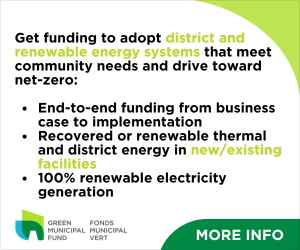Albertans are using more electronics every year, with many ending up in landfills when they're no longer in use. At the same time, there are currently no dedicated programs in Canada for recycling renewable energy materials, which could create major problems in the years ahead.
To keep more waste out of landfills, Alberta's government will be expanding its recycling program. Starting next year, Alberta will begin permanently recycling more than 500 additional electronic items, including cell phones, power tools and microwaves. The province will also start developing Canada's first provincial recycling programs for solar panels, electric vehicle batteries and wind turbine components. These additions will make Alberta's recycling system the most comprehensive in Canada.
"Building on the success of the Electronics Recycling Pilot Program, we are stepping up to reduce waste and create the best recycling system in Canada - especially when it comes to proactively addressing materials from wind and solar electricity. We're not just focused on what Albertans want to recycle today, but also what they are going to want to recycle 20 years from now."
Rebecca Schulz, Minister of Environment and Protected Areas
Expanding electronics recycling
Alberta's regulated Electronics Recycling Program currently includes only computer equipment and televisions. Since 2020, the Alberta Recycling Management Authority (ARMA) has run an Electronics Recycling Pilot Program, helping communities recycle more than 500 different types of electronic items.
Starting April 1, 2025, this pilot will become a permanent, province wide part of Alberta's recycling system, enabling Albertans to recycle more electronic items, including:
- power tools
- lawn and garden equipment
- small appliances (e.g., microwaves, coffee machines, digital bathroom scales)
- cell phones / telephones
- A/V devices (e.g., speakers, DVD players, VCRs)
- musical instruments (e.g., electric guitars, keyboards)
- video game equipment
- toys
These electronic items can be dropped off at any of the 365 registered recycling depots in 148 municipalities across the province.
"ARMA's expanded Electronics Recycling Program is protecting our environment, fostering innovation and shaping tomorrow's solutions. By managing e-waste and tackling the complexities of renewable energy materials head on, we're creating new opportunities, new industries and more jobs and building our circular economy. It means a more sustainable future without waste for Alberta. I want to extend my gratitude to the Government of Alberta for its unwavering support, which has been crucial in our efforts."
Ed Gugenheimer, chief executive officer, Alberta Recycling Management Authority
Recycling renewable energy materials
There are currently no dedicated solar panel recycling programs or facilities in Canada, despite estimates that up to 800,000 tonnes of solar panels could reach end of life by around 2050. Similarly, there are no provincial wind turbine recycling programs and only Quebec offers a voluntary, industry-led EV battery recovery program.
Alberta's government and ARMA will start consulting with experts and industry partners on steps needed to set up a permanent provincial renewable energy recycling program. This will include exploring what new programs and policies are needed to support solar panel recycling, including any potential fees or landfill bans. At the same time, the province will also begin exploring steps needed to set up wind turbine and EV battery recycling programs in the future.
Alberta innovation
ARMA is also investing in new recycling technologies. For example, one of the biggest challenges in the electronics recycling industry is processing electronics - such as ear pods or vapes - that contain batteries. As seemingly everything goes cordless, there is a growing list of applicable devices from hand mixers to sunglasses where fire risk is a concern for waste handlers.
ARMA invested $250,000 to help Quantum Recycling install an AI-powered X-ray system, which is capable of scanning material and auto identifying which item in the e-waste stream contains hazardous waste in real time, primarily targeting embedded batteries. Installed in Edmonton, the system will allow Quantum to focus its time and labour on those devices that specifically contain hazards, resulting in higher throughput, better quality commodity recovery and a safer environment for its workers.
"Alberta is home to a dynamic waste management and resource recovery sector, which is why we continue to invest here. We applaud the Alberta government for its leadership in allowing for a competitive collection system and ensuring that all products with a battery or plug are recycled. These initiatives lead to the market stability and scale required for companies like Quantum to grow our operations and provide amazing service to all Albertans with the highest environment outcomes and the lowest possible cost."
Gary Diamond, president, Quantum Lifecycle Partners
In addition to helping minimize waste by keeping products out of landfills, increasing reuse and improving recycling across the province, expanding the Electronics Recycling Program is part of Alberta's Emissions Reduction and Energy Development Plan.
Quick facts
- Since September 2020, Alberta's Electronic Recycling Pilot Program has diverted 14,500 tonnes of material from landfills, the weight equivalent of about 4,000 cars.
- The electronics program expansion will divert an estimated 5,500 tonnes of additional electronic waste from Alberta landfills each year. The program currently diverts about 8,500 tonnes per year.
- A full list of electronics that can be recycled is available online. Consumers may be required to pay a small environmental fee, likely between 40 cents and $1, when purchasing newly designated electronic products under the expanded recycling program.
- The Alberta Recycling Management Authority operates provincial recycling programs for used oil materials, tires, paint and paint containers, and electronics, with 437 collection sites located throughout the province.
- Canada could create 800,000 tonnes of expired solar panel waste by 2050, according to the International Renewable Energy Agency.
Related information




















